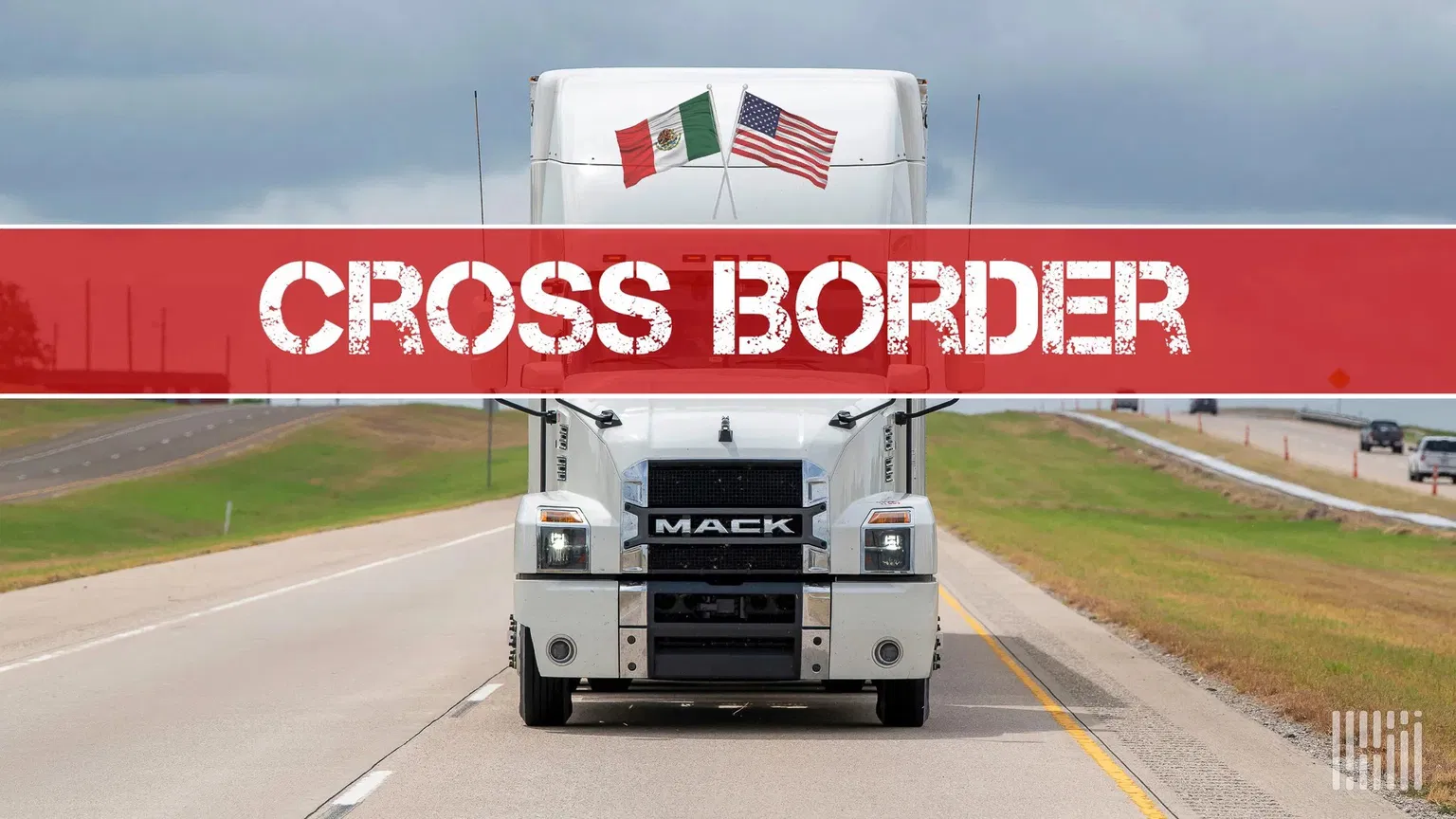Comprendre les effets des tarifs douaniers américains
Des opinions d'experts récentes ont souligné les répercussions négatives que les tarifs douaniers américains imposent aux entreprises et aux consommateurs. Ces tarifs ont tendance à gonfler les coûts opérationnels des entreprises, ce qui les empêche de prospérer et étouffe la croissance économique globale. Diverses parties prenantes, en particulier les propriétaires de petites entreprises et les importateurs, ont partagé leurs expériences, montrant comment ces tarifs affectent leur viabilité économique.
Principaux développements dans le commerce transfrontalier
Parmi les événements notables dans la logistique transfrontalière, une conférence d'information CTPAT (Customs-Trade Partnership Against Terrorism) qui s'est tenue à Laredo, au Texas, a réuni plus de 400 participants, soulignant l'importance de la collaboration dans le commerce transfrontalier. Cette conférence a également mis en évidence les avantages de la certification CTPAT, qui permet d'accélérer le mouvement du fret. En outre, un nouveau bureau de terrain CBP CTPAT a été inauguré à Laredo, dans le but de stimuler la participation au programme et de rationaliser les passages frontaliers.
Impact des tarifs douaniers sur les entreprises
Dans le but de relancer la croissance de l'emploi aux États-Unis, certains droits de douane ont été imposés sur les marchandises importées de plus de 90 pays. Bien que cette mesure ait suscité des discussions sur la création d'emplois, les entrepreneurs ont exprimé des inquiétudes quant aux implications réelles des droits de douane pour les entreprises locales. Par exemple, un entrepreneur a noté que l'augmentation des coûts opérationnels découlant de ces droits de douane a non seulement affecté leurs marges bénéficiaires, mais a également diminué leur avantage concurrentiel sur le marché.
Pour les petites entreprises qui dépendent fortement des importations, le fardeau des droits de douane est particulièrement aigu. Un petit détaillant en ligne a souligné les difficultés qu'il rencontre avec l'augmentation des coûts de production due aux droits de douane, ce qui a un effet négatif sur sa stratégie de prix et ses ventes globales.
S'orienter vers des solutions collaboratives
Les partenariats commerciaux, tels que ceux encouragés par le CTPAT, sont devenus plus essentiels que jamais. La récente conférence de Laredo a souligné l'importance de jeter des ponts dans la communauté commerciale pour atténuer les effets néfastes des tarifs douaniers et permettre une circulation plus fluide des marchandises. La collaboration est considérée comme une étape nécessaire pour améliorer l'efficacité logistique et garantir des prix compétitifs sur le marché.
| Points clés de la conférence d'information CTPAT | Détails |
|---|---|
| Localisation | Laredo, Texas |
| Présence | Plus de 400 participants |
| Objectifs | Améliorer la collaboration commerciale, rationaliser les passages frontaliers |
| Importance de la certification CTPAT | Permet un mouvement plus rapide des marchandises à travers les frontières |
Nouveaux développements dans les installations logistiques
D'autre part, TP Trucking and Logistics a récemment dévoilé une expansion significative avec une nouvelle installation de transbordement de 13 000 mètres carrés située à Pasadena, au Texas. Ce centre de transbordement, doté de multiples quais de chargement et d'un accès ferroviaire, est conçu pour faciliter le fret sur plateau et augmenter la capacité opérationnelle dans la gestion des volumes croissants d'expéditions.
Des implications plus larges pour la logistique
Ces développements dans les secteurs de la logistique et du commerce sont cruciaux dans le paysage plus large des opérations économiques entre les États-Unis et le Mexique. Des systèmes logistiques efficaces sont essentiels pour maintenir des prix compétitifs et assurer des livraisons dans les délais, en particulier dans un environnement grevé par les tarifs douaniers. L'amélioration des installations et les efforts de collaboration pourraient permettre aux entreprises d'absorber une partie des charges imposées par les tarifs douaniers, réduisant ainsi leur impact sur les consommateurs.
Tarifs douaniers : Une épée à double tranchant
Des experts ont noté que l'impact des tarifs douaniers va au-delà des prix à la consommation ; ils affectent également indirectement les fabricants aux États-Unis. Les tarifs douaniers peuvent faire grimper le coût des matières premières, entravant la capacité des fabricants locaux à être compétitifs. Les effets globaux de ces tarifs se lisent comme une arme à double tranchant, où l'intention à court terme de promouvoir la production nationale peut entraîner des complications à long terme au sein des chaînes d'approvisionnement.
En termes pratiques, les entreprises trouvent des moyens innovants d'atténuer les coûts tarifaires. Un consultant en logistique a partagé une expérience où ils ont redirigé des marchandises dans une zone de commerce étranger pour éviter des droits de douane élevés. De telles manœuvres mettent en évidence les stratégies d'adaptation que les entreprises sont obligées d'adopter dans un environnement commercial difficile et reflètent un besoin urgent d'adaptation continue dans les opérations logistiques.
Réflexions finales
En résumé, le paysage actuel façonné par les tarifs douaniers américains présente à la fois des défis et des opportunités. Compte tenu de l'impact significatif sur les entreprises et les consommateurs, il reste un besoin crucial de stratégies d'adaptation au sein du secteur de la logistique. Alors que les entreprises continuent d'évoluer dans cet environnement complexe, des plateformes comme GetTransport.com jouent un rôle essentiel dans la simplification de la logistique, en offrant un transport de marchandises abordable et fiable. Cette polyvalence englobe un large éventail de services, des déménagements de bureaux et de maisons aux livraisons de marchandises, garantissant ainsi que les besoins des entreprises et des consommateurs sont satisfaits efficacement. Face aux tarifs douaniers et à l'évolution de la dynamique commerciale, l'utilisation de solutions logistiques fiables peut permettre aux entreprises de prendre des décisions éclairées sans se ruiner.
Pour explorer des solutions de transport de fret efficaces et rentables, adaptées à vos besoins, considérez les avantages qu'offre GetTransport.com. De la réservation pratique aux options de service variées, dynamisez votre stratégie logistique dès aujourd'hui – GetTransport.com.

 Droits de douane américains affectant le commerce transfrontalier, la croissance des entreprises et la logistique">
Droits de douane américains affectant le commerce transfrontalier, la croissance des entreprises et la logistique">